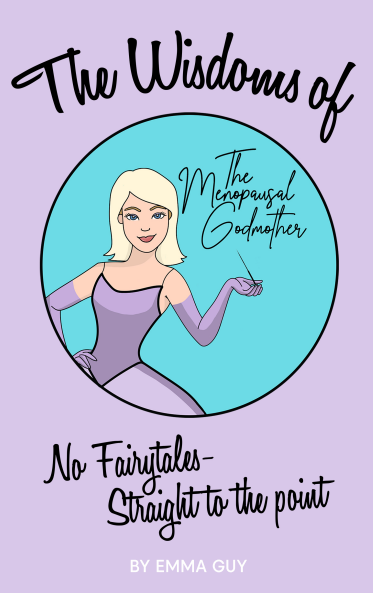Feel too young to be going through the menopause? You probably are but if you’re waking up in a sweat at night, having trouble sleeping and your periods are all over the place, the chances are you’re experiencing the perimenopause.
Peri, which means around or near (it’s Greek you know) describes the months or years leading up to menopause, which is when menstruation ends.
What is perimenopause?
Perimenopause is the result of a decline in the function of the ovaries. When this happens it can cause ovulation to become erratic and/or stop completely and as a result, you’ll get irregular periods. So if you’re in your 40s and on some months you experience heavy bleeding and at other times lighter bleeding, the chances are you are perimenopausal. This stage in your reproductive cycle can last from a few months to four years and in some cases up to 10 years. Eventually it will end when you’ve gone 12 consecutive months without having a period. That’s when you enter the menopause. Of course not every woman goes through the perimenopause and while some women can experience distressing symptoms others can experience few or none.
The symptoms of perimenopause
Irregular periods
This is one of the main signs that you’re experiencing the perimenopause. Your fluctuating hormone levels are the cause of this irregular bleeding, so some months your periods might be shorter and lighter and other months longer and heavier and you may begin to miss periods altogether. It’s all very inconvenient but usually there is nothing to worry about, although if bleeding is extremely heavy, happens less than every three weeks and lasts longer than normal it may be you need to get checked out by your GP.
Hot flushes
Most women think of hot flushes as being associated with the menopause, which is when your periods have completely stopped but they can be a symptom of the perimenopause too and if that is the case, you could find yourself experiencing them at a relatively young age.
An estimated 35%–50% of perimenopausal women suffer sudden waves of body heat with sweating and flushing that last 5–10 minutes, often at night as well as during the day. These
Hot flushes are frequently described as a sudden feeling of heat that seems to come from nowhere and spreads throughout the body. As if that wasn’t unpleasant enough you may also experience sweating and palpitations as well as feelings of anxiety. Some women can feel like they’ve been drenched with a bucket of water when they wake up at night in a sweat.
Hot flushes are something that can happen only occasionally or they can occur several times a day and into the night. And they don’t stop at the menopause but can last for years after menstruation has stopped.
Night sweats
It’s not uncommon to wake up in the middle of the night drenched with sweat. These night sweats are caused by hormonal fluctuations.
Decreased fertility
As you might expect, as ovulation becomes irregular then your ability to conceive decreases. However, pregnancy is possible while you’re still having periods so you still need to use birth control until you’ve gone 12 months without periods.
Vaginal dryness
During late perimenopause, falling estrogen levels can cause vaginal tissue to become thinner and drier. Vaginal dryness (which usually becomes even worse after menopause) can result in itching and irritation. It may also be a source of pain during intercourse, contributing to a decline in sexual desire at midlife.
You may have vaginal dryness if you:
Feel sore or itchy in and around your vagina.
Experience pain or discomfort during sex.
Have the urge to wee more often than usual.
Keep getting urinary tract infections (UTIs)
Low libido
Find yourself saying you’ve ‘got a headache’ more than you’d like to? You may feel you have little or no sex drive at this time in your life. While this could be the result of a number of lifestyle factors it can also be related to low testosterone levels in your body.
Changes in mood
Feeling irritable and experiencing mood swings? The emotional impact of perimenopause can impact on you in various ways. You might also find yourself more prone to depression too. Let’s face it, with the trauma of getting older and everything going on in your body this isn’t surprising but you don’t need to suffer in silence so if things are getting you down then please see your GP.
Weight gain
The drop in oestrogen levels that happens at menopause has the effect of redistributing body fat, so excess pounds tend to settle round the waist as the dreaded ‘middle-aged spread’.
Fragile bones
With declining estrogen levels, you start to lose bone more quickly than you replace it, and this can increase your risk of osteoporosis, a disease that causes fragile bones.
Bad cholesterol
Declining estrogen levels may lead to unfavourable changes in your blood cholesterol levels, including an increase in something called low-density lipoprotein (LDL) cholesterol. This is the “bad” cholesterol, which leads to an increased risk of heart disease. At the same time, high-density lipoprotein (HDL) cholesterol or what is thought of as the “good” cholesterol decreases in many women as they age, which also increases the risk of heart disease.
Headaches
Hormonal changes can be the cause of an increased number of headaches and migraines.
Brain fog
Many women complain of short-term memory problems and difficulty concentrating during this time and although oestrogen and progesterone can help maintain brain function, there is still some debate around whether your forgetfulness and lack of concentration is a result of the perimenopause.
Joint pain
Low levels of oestrogen can lead to joints feeling stiff and aching.
How do I know it’s the Perimenopause?
One woman’s experience of the perimenopause can differ completely from another’s and while hormonally-based symptoms such as hot flushes and unpredictable periods are common signs there are other symptoms you might have and explain away as normal midlife events such as experiencing insomnia because your children have left home, or feeling depressed a parent has passed away. But if you think that what you’re experiencing and feeling is the perimenopause it’s important not to suffer in silence. There is effective help out there, whether it’s hormone replacement therapy or complimentary treatments such as acupuncture and herbal supplements.
Menopause and Perimenopause Support
If you’re looking for menopause support and not sure where to turn, The Menopausal Godmother is a community built for exactly that. Filled with women of all ages going through the menopause and perimenopause, The Menopausal Godmother community also includes godmothers who are experts in the field related to menopause. They offer friendly, factual advice in all areas menopause related. For more information, find out how it works, or follow us on our social media channels @menogodmum. Alternatively, you can fill out the contact form below if you have any specific questions.

Emma is a multi-entrepreneur. She founded The Menopausal Godmother and Acupuncture That Works. She specialises in acupuncture for menopause & fertility and has delivered acupuncture to over 1000 women going through the menopause.








